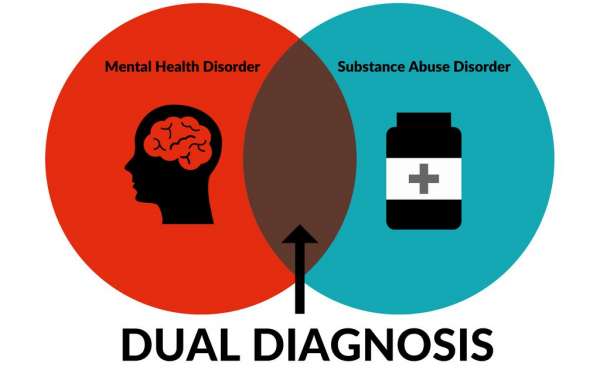Whether you are dealing with a mental health disorder or a substance abuse disorder, you can find the help you need to lead a happy, healthy life. A dual diagnosis is a condition that includes both a mental health disorder and a substance abuse disorder. These are different types of illness and require different types of treatment.
Mental health disorder
Having a dual diagnosis can be a complex issue, and can cause complications in the recovery process. Although there is no one-size-fits-all treatment, there are steps you can take to improve your situation.
A common problem with dual diagnosis is self-medication. Many people with mental disorders use drugs or alcohol to relieve symptoms, which can worsen the underlying problem.
Often, the first step in recovery from dual diagnosis is detoxification. This can take place in a detox facility, or it may be done in an inpatient setting. The detoxification process involves flushing out the substances from your system. This process is usually monitored by medical staff.
Behavioral therapy can help you learn to cope without using substances. You may also be referred to a support group. These groups provide a safe place to vent frustrations and find inspiration.
Those suffering from mental health disorders are at a higher risk of developing substance use disorders. This can be caused by genetic predisposition, a traumatic event, or chronic stress.
Substance abuse disorder
Those with a substance abuse problem are also at risk of developing a mental disorder. Dual diagnosis adds to the complexity of diagnosis and assessment.
Dual diagnosis is a common problem for people of all ages. Studies have shown that young people are at an increased risk for both disorders. The symptoms of dual diagnosis can vary from person to person. The severity of the symptoms will depend on the nature of the co-occurring disorders. Some of the more serious symptoms include delusions, paranoia, and suicidal thoughts.
Some people may develop a substance abuse problem before they develop a mental illness. This may be because of genetic predisposition. Stress can also increase the risk for addiction. Another common risk factor is a traumatic event.
Many people who suffer from a mental disorder use substances as a way to relieve stress. This may include alcohol or drugs to help them relax or feel better.
People with dual diagnosis may also use self-medication, which involves using drugs or alcohol to mask the symptoms of their mental disorder. Some people are reluctant to disclose their problems, either because of fear or because of stigma.
Genetic predisposition to addiction and mental disorder
Approximately fifty percent of addiction is due to genetic factors. Researchers are working to identify specific genes that can lead to addiction. In addition to genetics, other factors are also important. Environmental factors, such as peer groups, stress and stress-resilience factors, can also affect drug and alcohol use.
A new study by researchers at the Howard Hughes Medical Institute has identified a protein, called PSD-95, that has a link to drug addiction. The study also found that there are many variations within the gene, and that these variations are a key factor in protecting individuals from drug and alcohol use.
Researchers conducted a study that involved 2,573 unrelated adults. They divided the families into groups that were affected and unaffected. They analyzed the genetic code of each family member. They identified over 400 locations in the genome. The authors then used the information to calculate the genetic risk for several psychiatric conditions. They found that people who are genetically predisposed to mental illness also had higher rates of substance involvement.
Treatment options
Oftentimes, people who have mental illness and substance use disorders need additional support. When they are left untreated, they can experience intense feelings of inadequacy and loneliness. They may also experience social anxiety, depression, and suicidal thoughts.
Self-medication is often used by people with mental health disorders. It can be dangerous because it is often not monitored by a physician. It also can lead to a cycle of abuse. When substance use becomes chronic, it can trigger permanent changes in the brain. These changes can cause unnatural behaviors, including anxiety and schizophrenia.
Oftentimes, people with substance use disorders self-medicate for an underlying mental illness. They may use drugs to mask feelings of isolation, to relax, or to feel good. This can be especially difficult if they do not have access to psychological services.
Dual diagnosis is challenging to treat, but it can lead to recovery. Treatment programs must address both conditions at the same time. It may involve outpatient or inpatient treatment. Dual diagnosis programs should also be culturally responsive.







